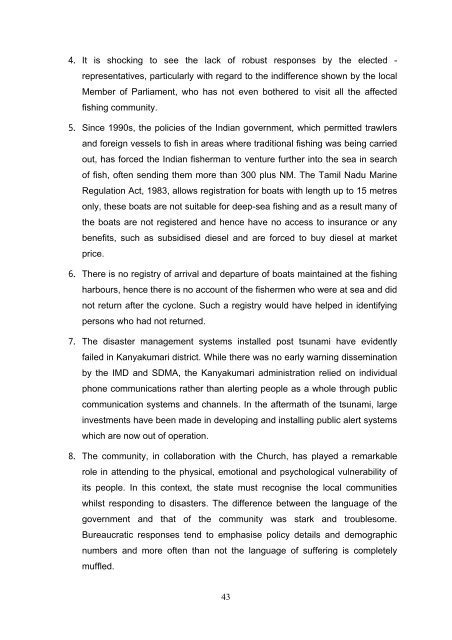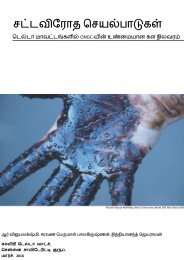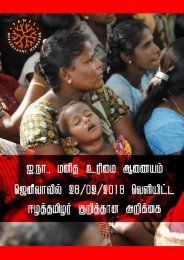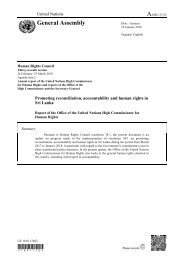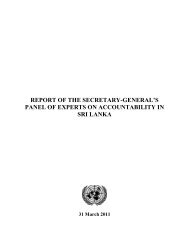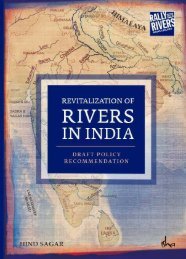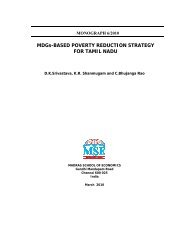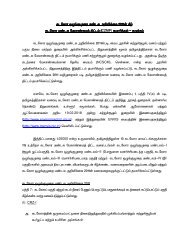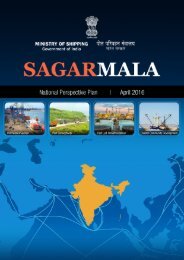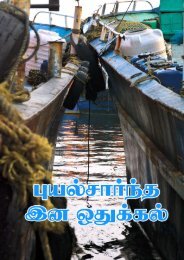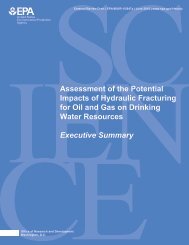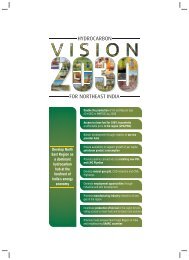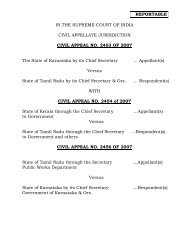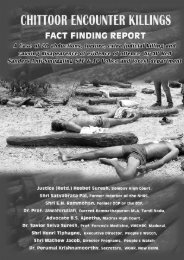Ockhi Cyclone Dec-2017 Report English
You also want an ePaper? Increase the reach of your titles
YUMPU automatically turns print PDFs into web optimized ePapers that Google loves.
4. It is shocking to see the lack of robust responses by the elected -<br />
representatives, particularly with regard to the indifference shown by the local<br />
Member of Parliament, who has not even bothered to visit all the affected<br />
fishing community.<br />
5. Since 1990s, the policies of the Indian government, which permitted trawlers<br />
and foreign vessels to fish in areas where traditional fishing was being carried<br />
out, has forced the Indian fisherman to venture further into the sea in search<br />
of fish, often sending them more than 300 plus NM. The Tamil Nadu Marine<br />
Regulation Act, 1983, allows registration for boats with length up to 15 metres<br />
only, these boats are not suitable for deep-sea fishing and as a result many of<br />
the boats are not registered and hence have no access to insurance or any<br />
benefits, such as subsidised diesel and are forced to buy diesel at market<br />
price.<br />
6. There is no registry of arrival and departure of boats maintained at the fishing<br />
harbours, hence there is no account of the fishermen who were at sea and did<br />
not return after the cyclone. Such a registry would have helped in identifying<br />
persons who had not returned.<br />
7. The disaster management systems installed post tsunami have evidently<br />
failed in Kanyakumari district. While there was no early warning dissemination<br />
by the IMD and SDMA, the Kanyakumari administration relied on individual<br />
phone communications rather than alerting people as a whole through public<br />
communication systems and channels. In the aftermath of the tsunami, large<br />
investments have been made in developing and installing public alert systems<br />
which are now out of operation.<br />
8. The community, in collaboration with the Church, has played a remarkable<br />
role in attending to the physical, emotional and psychological vulnerability of<br />
its people. In this context, the state must recognise the local communities<br />
whilst responding to disasters. The difference between the language of the<br />
government and that of the community was stark and troublesome.<br />
Bureaucratic responses tend to emphasise policy details and demographic<br />
numbers and more often than not the language of suffering is completely<br />
muffled.<br />
43


